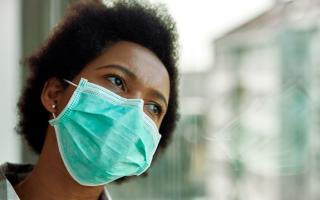
The Constitution and the pandemic
How COVID-19 has impacted Human Rights
It has been about one year since the COVID-19 virus started to have a drastic impact on everyone's lives. Governments around the world have been compelled have certain restrictions in response to the threat of the COVID-19 virus and South Africa was no different.
During March 2020, South Africa confirmed its first case of COVID-19. In reaction to the seriousness of the COVID-19 virus and in an attempt to avoid it from spreading, the South African government declared a national state of disaster and initiated a national lockdown.
During the past year, a number of restrictions to human rights were imposed from time to time as a result of the national state of disaster. This article will take a look back at the impact of these restrictions on human rights.
Which laws empower the government to limit human rights?
> During the national state of disaster, the government has been working within the framework of the Constitution, as well as the Disaster Management Act 57 of 2002 (“DMA”).
> According to the DMA, a disaster is “a progressive or sudden, widespread or localised, natural or human-caused occurrence which causes or threatens to cause death, injury or disease…”. It is clear that the COVID-19 virus outbreak falls under the definition of a disaster.
> In such instances, the government is empowered to limit certain types of human rights in order to contain such disasters if it will, for example, protect people and deal with the disruptive effects of the disaster.
> However, any limitation of human rights done in terms of the DMA must meet the criteria set out in section 36 of the Constitution. This section, known as the limitation clause, provides that any limitation of human rights must:
- apply to all people and not just one or a group of people; and
- be based on a good reason that can reasonably be justified in an open and democratic society.
What are some of the human rights that were limited during the national state of disaster?
> Some of the human rights mostly affected by the national state of disaster include the freedom of movement, freedom of expression, and indirectly, the freedom of trade, occupation and profession.
> Freedom of movement (section 21 of the Constitution):
- The past year saw various levels of lockdown that started off with a “hard” lockdown where every person was confined to their homes. They were only allowed to leave their homes to perform an essential service, obtain essential goods or seek medical attention.
- As the restrictions on movement eased, different curfews were introduced that confined people to their homes during certain hours of the day.
- Apart from the restrictions on movement, public gatherings (including prayer gatherings) were prohibited. The gatherings that were allowed had strict limitations placed on them, such as funerals where only a maximum of 50 people are allowed to attend.
- Due to the manner in which the COVID-19 virus spreads, the limitations on movement and gatherings are aimed at preventing the spread of the virus, reducing the burden on the healthcare system and reducing the number of deaths.
> Freedom of expression (section 16 of the Constitution):
- During the past year, an increase on the spread of false information has been witnessed. In its effort to prevent misinformation, the South African government has criminalised the spread of fake news.
- A person is guilty of a criminal offence if s/he publishes a statement in any form (including social media) with the intention to mislead others regarding the COVID-19 virus, the infection status of a person or any measures taken by the State.
- Everyone should verify information before sharing it and contributing to disinformation about the COVID-19 virus and related matters.
> Freedom of trade, occupation and profession (section 22 of the Constitution):
- During the various levels of lockdown, most businesses were prohibited from operating, with the exception of those providing essential services or those that could operate from home. This was in line with the limitation on movement of persons to avoid the gathering of groups of people and to limit the spread of the COVID-19 virus.
- There were also various limitations on the sale of alcohol and tobacco products at different levels of the lockdown.
What were some notable court cases during the national state of disaster?
> Due to the different manners in which the national state of disaster could limit a person's human rights, the courts were approached for access to justice. The courts had to consider all circumstances and balance everyone's human rights in order to get to the best possible outcome. A few examples are:
- One matter saw an application to allow daily prayers at the mosque during the time when gatherings and movement were limited. The court held that the limitation of the affected rights to movement and practicing their religion was justified by the attempts to flatten the curve.
- The tobacco industry successfully challenged the ban on the sale of tobacco products. The court held that the ban had not been justified in science or law. The court acknowledged that due to the urgent attention necessary to stop the spread of the COVID-19 virus, the government had been faced with a moral obligation to act swiftly when little was known about the COVID-19 virus.
In many of the cases where human rights were limited, the prevailing perspective seems to be that the limitations are reasonable and justifiable as required by section 36 of the Constitution. The measures put in place during the national state of disaster are amended frequently to accommodate the changing priorities and needs of everyone. However, the courts remain open to decide on any challenges brought before them.
Did you know…Human rights can be limited in certain instances.